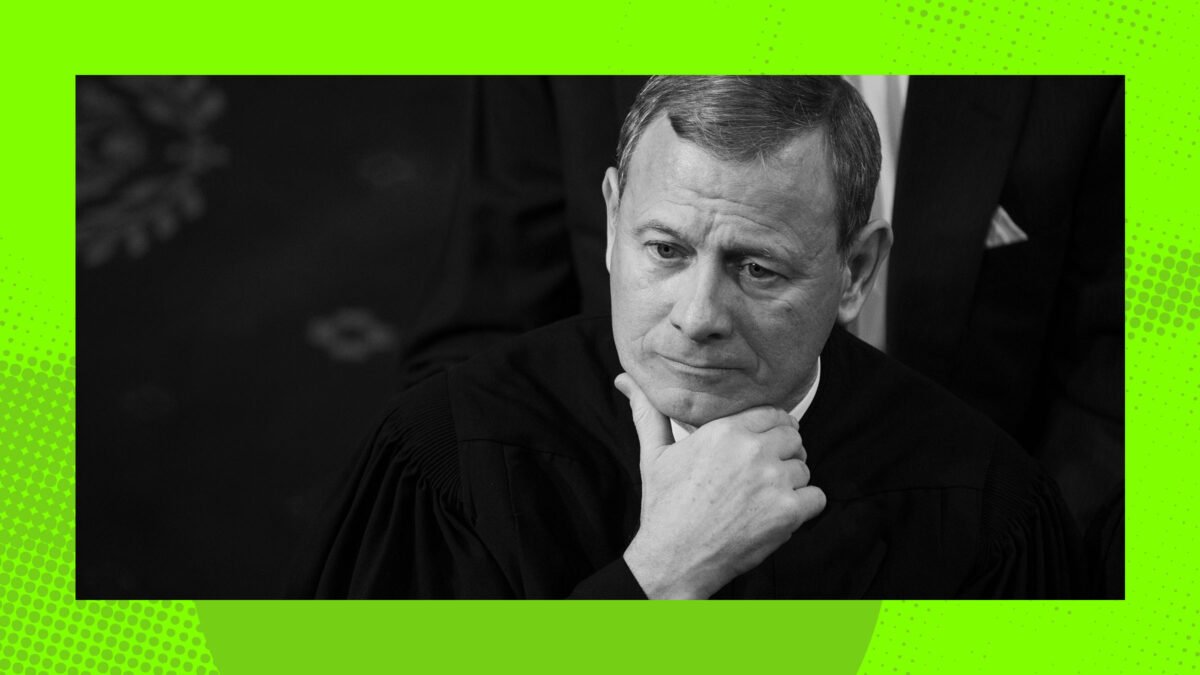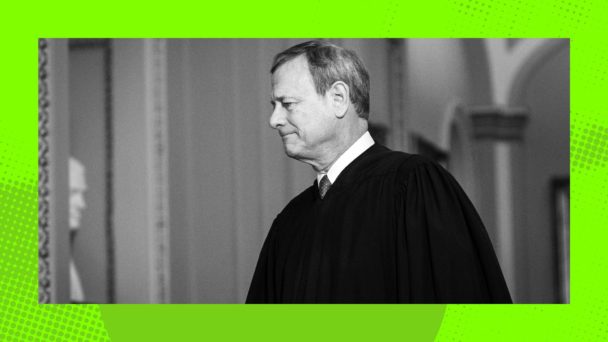On Tuesday, as 2024 mercifully came to a close, Chief Justice John Roberts issued his year-end report on the federal judiciary. The report contained all of the meaningful self-reflection that Supreme Court watchers have come to expect from Roberts’s annual exercise—which is to say, none whatsoever.
Roberts’s report provides little insight into the actual problems the judiciary faces. It didn’t mention, for instance, the Senate Judiciary Committee’s investigation into the Court’s ethical challenges, which resulted in a nearly-hundred-page report published just days before Roberts’s own that found that the Court “allowed a culture of misconduct to metastasize into a full-blown crisis.” He did not bring up the Court’s dramatic and repeated interventions into the 2024 election to bolster Donald Trump’s presidential campaign and shield him from criminal liability. Nor did Roberts discuss the regular stream of revelations about the justices’ inappropriate financial and political relationships, or how those scandals have caused public confidence in the Court to plummet, cratering at about 40 percent in September 2021 before creeping up to 44 percent as of September 2024.
Instead, the report elucidates the chief justice’s priority: power. Roberts has led the Supreme Court in implementing an odious policy agenda without public support or accountability. And his report implicitly promotes three ways to preserve the Court’s power to run roughshod over the rest of the country.
1. We should have our jobs forever
Roberts’s year-end report begins not with 2024 but 1761, when King George III decreed that colonial judges would no longer serve “during good behavior” and would instead hold their offices “at the pleasure of the Crown.” Colonists’ disapproval of this order was one of the grievances listed in the Declaration of Independence, Roberts explains, and is the basis of the modern tradition of lifetime judicial appointments. This history lesson has three intended implications: Judicial independence is a foundational aspect of the American legal order; that independence is facilitated by life tenure; and so the numerous bills in Congress that would impose term limits for justices ought to be opposed.
Curiously enough, unlimited terms for judges are a global rarity, since the rest of the world recognizes that judges can be independent without indefinite tenure. And most Americans take issue with unaccountable judges ruling forever: Last year, a YouGov poll showed that 70 percent of Americans, including 56 percent of Republicans, support setting a maximum number of years that justices can serve.
But that brings us to Roberts’s second principle—not caring what most Americans think.
2. We don’t have to listen to you
Gallup polling conducted in September showed that only 44 percent of Americans approve of the way that the Court is handling its job. This may strike a normal person as a bad sign. But Roberts treats being out of step with public opinion as a badge of honor, indicating he’s doing what’s right even when it’s unpopular. He quotes Justice Anthony Kennedy, who once said that “judicial independence is not conferred so judges can do as they please,” but that so “judges can do as they must.” And Roberts drives the point home by quoting the 2004 report written by his predecessor, Chief Justice William Rehnquist: “The Constitution protects judicial independence not to benefit judges, but to promote the rule of law.”
According to Roberts, the rule of law depends on judges righteously staying firm in the face of “attempts to intimidate” them. Yet his definition of “intimidation” is expansive and full of false equivalences. The report literally includes an image of a cross that was burned on Chief Justice Earl Warren’s lawn after he authored the unanimous opinion in Brown v. Board of Education, placed right next to Roberts’s expressions of concern about people who “rage at judicial decisions on the Internet” and make “angry, profane phone calls” to judges’ offices.
Roberts also specifically names “suggesting political bias in the judge’s adverse rulings without a credible basis for such allegations” as an example of improper intimidation. Troublingly, Roberts gives no indication that he would consider any criticism to have a credible basis. Taking issue with the Court’s decisions and justices’ conduct, then, is the same as taking issue with the rule of law. Roberts does spare a moment to acknowledge that the judiciary can get and has gotten things wrong: “Of course, the courts are no more infallible than any other branch,” he writes. But the public can only criticize the judiciary with a good reason, and Roberts’s position is that the public simply does not have one.
3. You do have to listen to us
Finally, Roberts identifies “defiance of judgments lawfully entered by courts of competent jurisdiction” as a serious threat that undermines both judicial independence and the republic itself. To make his point, Roberts again raises the specter of resistance to Brown v. Board of Education, the judiciary’s favorite self-serving rhetorical tool. He mentions governors’ defiance of desegregation orders and lauds federal judges’ courage in upholding the law in the face of such opposition, calling this a “strong testament to the relationship between judicial independence and the rule of law in our Nation’s history.” The message here seems to be, Do what we say or the whole damn democracy comes crumbling down.
Roberts is leaving out critical context. And that context matters. Brown, which overturned a Court ruling that the Constitution permits state-sanctioned racial segregation, is not remotely comparable to Dobbs v. Jackson Women’s Health Organization, which overturned a Court ruling that the Constitution protects people’s right to end their pregnancies, no matter how many times Samuel Alito and Brett Kavanaugh tell themselves otherwise. The Roberts Court’s decisions are not defending an inclusive democracy. And defying decisions that reinforce the rights of marginalized people is categorically different from defying decisions that reinforce marginalization.
If you were looking for an actual review of the judiciary’s year, Roberts’s report is not useful to you. But it is informative for what it is: For Roberts, the judiciary’s most pressing task is attacking its critics and defending the status quo, without regard for how intolerable that status quo may be for the majority of the country.




